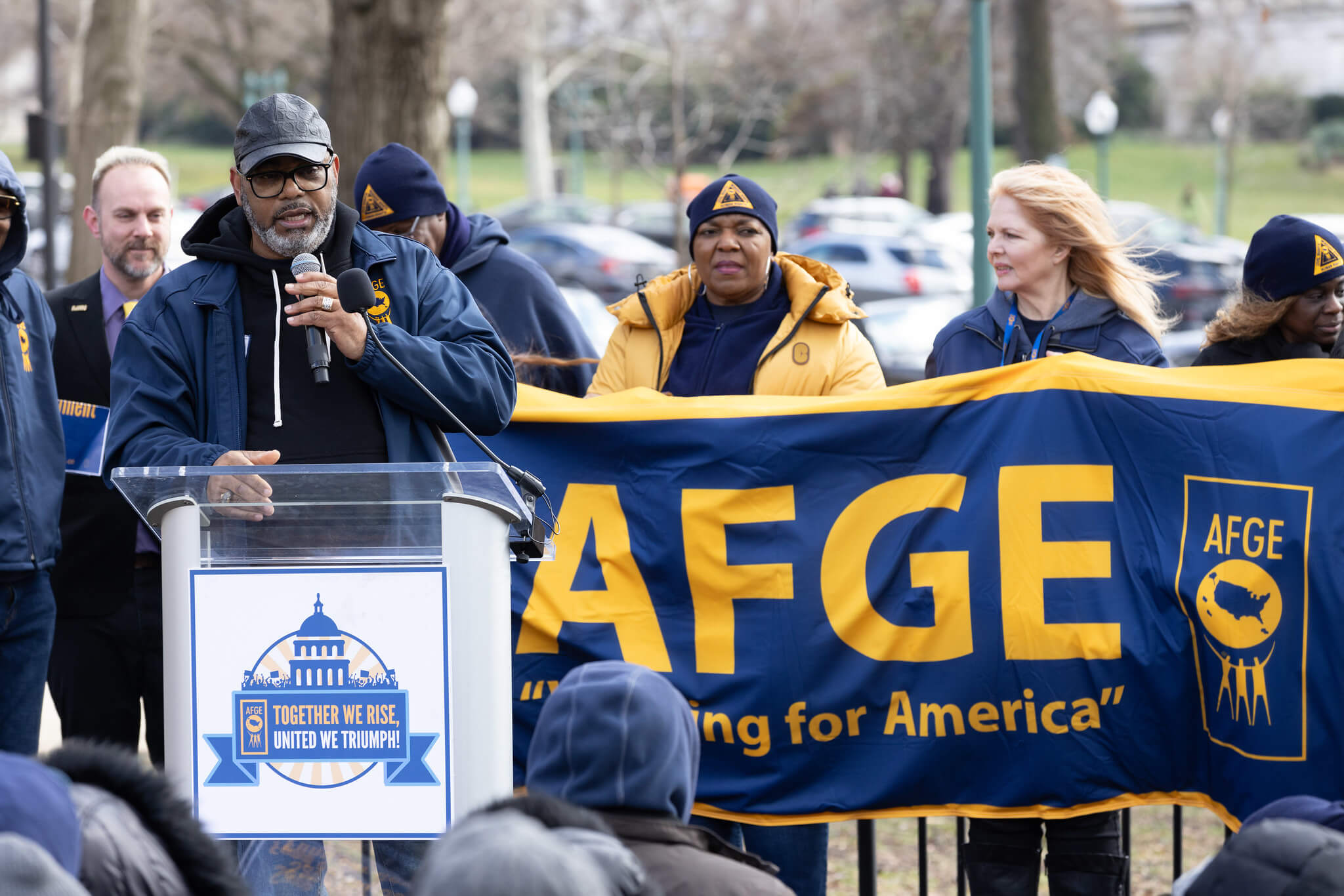Prosecuting Attorneys Alongside Clients: Some Recent Examples
On Monday, April 9, the FBI searched the office, home and hotel room of Michael Cohen, President Trump’s personal attorney.
Published by The Lawfare Institute
in Cooperation With

On Monday, April 9, the FBI searched the office, home and hotel room of Michael Cohen, President Trump’s personal attorney. The warrant was reportedly for evidence of possible bank and wire fraud and campaign finance violations, as well as documents related to Cohen’s dealings with Stormy Daniels and records relating to the Access Hollywood tape. The warrant was obtained following a referral by the special counsel’s investigation to the southern district of New York. The interim U.S. Attorney for SDNY, Geoffrey Berman—whom Trump interviewed when considering him for the Senate-confirmed position—recused himself from the Cohen investigation and was not involved in the decision to conduct the searches.
Trump quickly criticized the search, describing it as a “disgraceful situation” and an “attack on our country in a true sense.” The president continued his complaints the next day, tweeting that “attorney-client privilege is dead,” adding “TOTAL WITCH HUNT!!!” In a statement to the press, Cohen’s attorney said that the raids “resulted in the unnecessary seizure of protected attorney client communications between a lawyer and his clients,” calling the use of search warrants “completely inappropriate and unnecessary.”
Cohen filed a request for a temporary restraining order related to the warrant that authorized the search. On Friday, April 13, prosecutors and attorneys for Cohen, Trump, and Stormy Daniels appeared before U.S. District Judge Kimba Wood. Attorneys for Trump and Cohen argued that they should be able to review the potentially privileged documents and devices before prosecutors examine them. (Daniels’s attorney argued that some of the documents seized likely related to his client’s case against the president.)
Searches of attorneys’ offices are particularly sensitive. The FBI likely needed to clear a higher-than-normal bar to execute the searches of Cohen’s office.
Prosecutions of attorneys for crimes related to actions taken on behalf of their clients are also rare. But when charges are made, they tend to involve fraud, money laundering, and lying to investigators—behavior that should sound familiar to those following the Mueller investigation. Here is a look at a few recent attorney prosecutions to illustrate what activities tend to get lawyers in trouble and how criminal investigations into those activities tend to proceed—which offers some historical context for Michael Cohen’s current situation.
James Michael Farrell
In 2017, James Michael Farrell was convicted of money laundering, witness tampering, and obstruction of official proceedings, all related to his activities on behalf of his clients—participants in a drug-trafficking operation. Farrell conspired with his clients to conceal proceeds of their operation, using the money to pay the legal fees of grand jury witnesses and other individuals under investigation. He also filed affidavits with the Drug Enforcement Administration containing forged signatures and directed a witness to withhold information. The government’s case against Farrell was built on the testimony of various cooperating witnesses, who had met with Farrell at government’s instructions and sometimes had worn recording equipment.
Following Farrell’s conviction, Rod Rosenstein, then U.S. attorney for the district of Maryland, stated that Farrell “went far across the line between representing a criminal defendant and joining a criminal conspiracy.” Farrell was sentenced to 42 months in prison, followed by 18 months of supervised release. Farrell has appealed his conviction, arguing that he did not know that the source of the cash was criminal activity, and that the evidence used to convict him was insufficient. The National Association of Criminal Defense Lawyers has also filed an amicus brief in support of Farrell’s appeal.
Evan Greebel
Another recent prosecution of an attorney is the case of Evan Greebel, who was a partner at Katten Munchin Rosenman and then Kaye Scholer before he was indicted in 2015 for conspiracy to commit securities fraud and wire fraud in connection with his representation of pharmaceutical company Retrophin and its erstwhile CEO, Martin Shkreli. The Justice Department alleged that Greebel had conspired with Shkreli to defraud Retrophin’s investors and misappropriate its assets while concealing Shkreli’s ownership and control of Retrophin.
Notably, the indictment included excerpts of emails between Shkreli and Greebel purporting to show that Greebel had participated in setting up sham consulting arrangements designed to conceal payoffs to investors in Shkreli’s hedge funds. To obtain these emails—sent while Greebel was outside counsel to Retrophin—the U.S. attorney’s office had to overcome two potential claims of privilege: by Retrophin and by Shkreli. Though Retrophin waived its attorney-client privilege during the Justice Department’s investigation of Shkreli, it nonetheless redacted emails between Shkreli and Greebel over which Shkreli had asserted privilege, arguing that Greebel had represented him personally as well as Retrophin.
To overcome Shkreli’s assertion of privilege, the government submitted a 47-page affidavit on Nov. 18, 2015 (described here in note 2) offering evidence that the emails may have been in furtherance of Shkreli’s frauds. After an approximately two-week in camera review, a judge ordered many of the communications, including those relied on in the Shkreli and Greebel indictment, be released to federal prosecutors. The judge reasoned that the emails were sent in furtherance of a conspiracy to commit fraud and therefore subject to the crime-fraud exception; further, he ruled that Retrophin had waived any privilege related to company business.
Greebel was convicted after a 12-week trial and now faces up to 20 years in prison.
Walter Lloyd Blair
In an earlier Maryland case, attorney Walter Lloyd Blair was convicted of money laundering, witness tampering, and obstruction of justice. He retrieved $170,000 in proceeds of criminal activity from a safe owned by his client, a drug dealer, and used the money to pay lawyers representing his client’s associates, himself included. He directed another lawyer in his office to form a corporation to be controlled by a relative of his client, which was then used to purchase real estate with the funds from the safe. Blair also coached a witness not to tell the FBI about the $170,000 in cash from the safe and to lie about it if asked.
The government’s case against Blair was built around witness testimony and records of his financial transactions. He was sentenced to 97 months in prison. Blair appealed his conviction, but he was unsuccessful on all but obstruction of justice, for which his conviction was reversed due to insufficient evidence. He was also disbarred by the District of Columbia for “moral turpitude.”
Lauren Stevens
Lauren Stevens’ case differs from the preceding cases in that the government failed, twice, to make its case against Stevens. Prosecutors first indicted Stevens, the former vice president and associate general counsel of pharmaceutical company GlaxoSmithKline, in November 2010, charging her with obstructing a proceeding and falsifying and concealing documents in connection with an FDA inquiry into whether GlaxoSmithKline had illegally marketed certain drugs for off-label use. The government alleged that Stevens misleadingly denied wrongdoing while withholding the results of an internal investigation, including various slide presentations that purportedly confirmed the company’s off-label marketing, that she had promised to produce. The government later learned about these presentations when a company whistleblower sent them directly to the FDA, leading the government to conclude that Stevens had obstructed the FDA’s inquiry. This evidently also helped the government convince a magistrate judge to allow production of ordinarily privileged materials, such as a pro-con list prepared by outside counsel on the benefits and risks of sharing the slide presentations Stevens ultimately withheld, quoted at page 8 of the indictment. The district judge dismissed the charges against Stevens without prejudice, reasoning that the grand jury had been misinformed on whether Stevens’ good-faith reliance on advice of counsel would negate the intent requirements of the statutes she was charged with violating.
The government indicted Stevens for a second time in April 2011. After the prosecution presented its case, the court entered an acquittal pursuant to Stevens’ motion under Rule 29, which allows the court upon a defendant’s motion to enter a judgment of acquittal after the prosecution has concluded its case if “the evidence is insufficient to sustain a conviction.”. Having concluded that GlaxoSmithKline had used its communications with counsel to determine the appropriate lawful response to the FDA’s inquiries, rather than to “perpetrate a crime of fraud,” the court first lamented that the government had been allowed to obtain attorney-client communications pursuant to the crime-fraud exception. While “some of [Stevens’] statements [might not have been] literally true,” taken together, they were nonetheless made “in good faith” in the course of formulating her client’s response to an “extremely broad” government request. While the magistrate judge’s order approving the production of GlaxoSmithKline’s attorney communications evidently was not written (see page 421 here), several commentators have agreed that the crime fraud exception should not reach so far.
***
The fact that an attorney purports to act on her client’s behalf is clearly no bar to prosecution. But the line between a crime like obstruction and zealous advocacy may be seriously contested and, in cases like Stevens’, difficult to police aggressively. This helps explain why former federal prosecutors confirm that it is unusual to prosecute attorneys and rarer still to search their offices and homes. Cohen is not the first attorney to face this kind of investigation—but he may not take much comfort in his new company.





.jpg?sfvrsn=407c2736_6)
